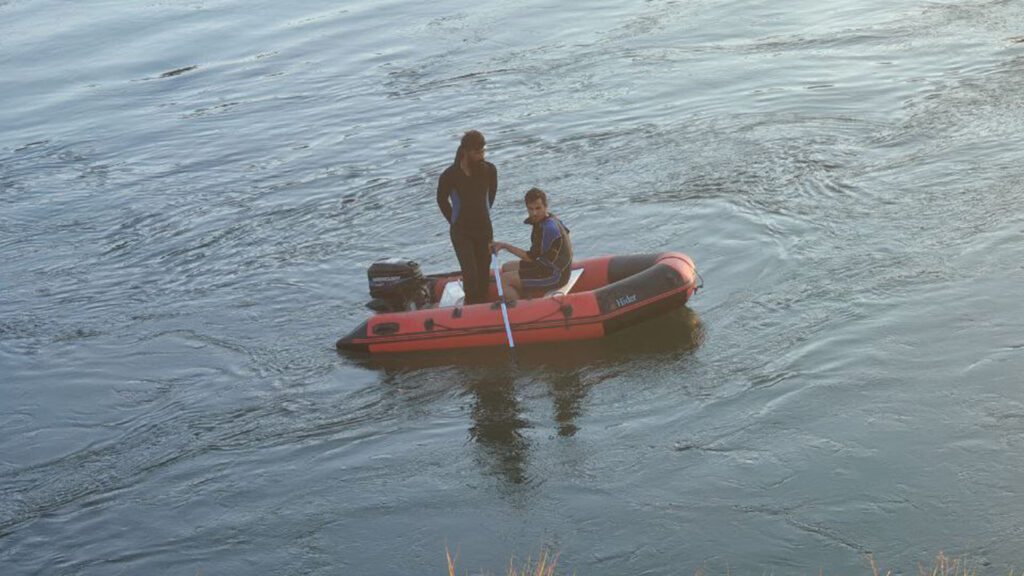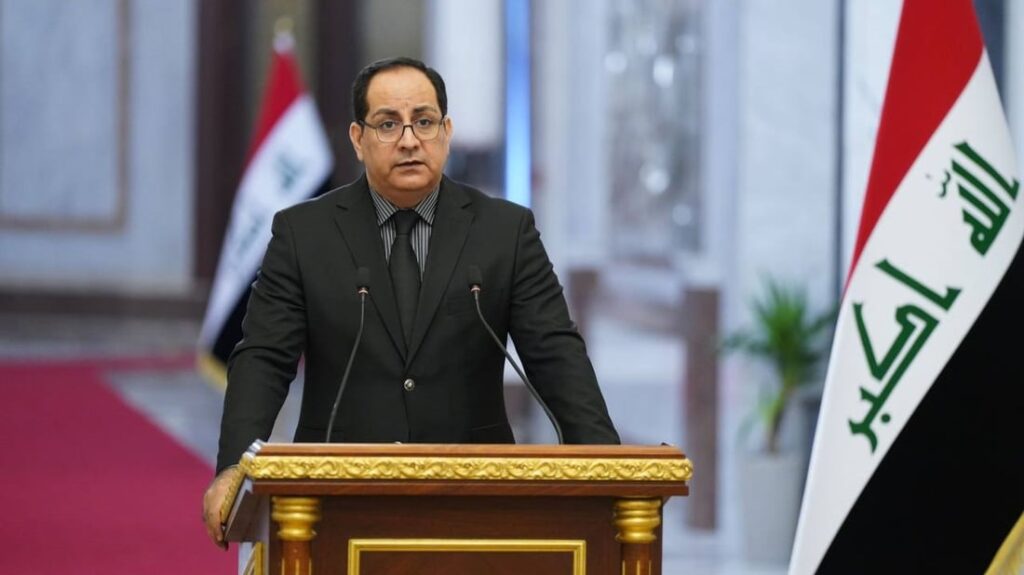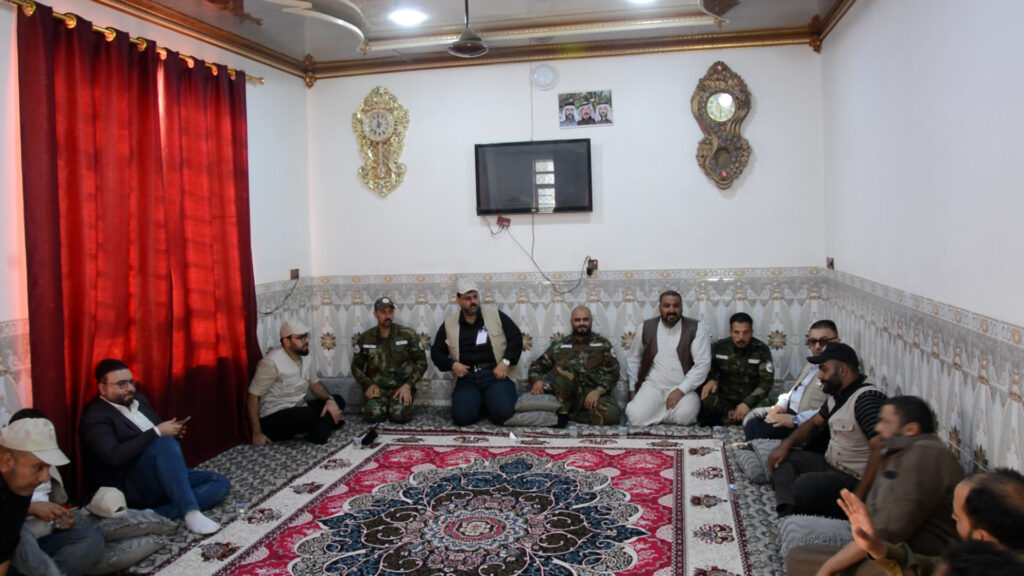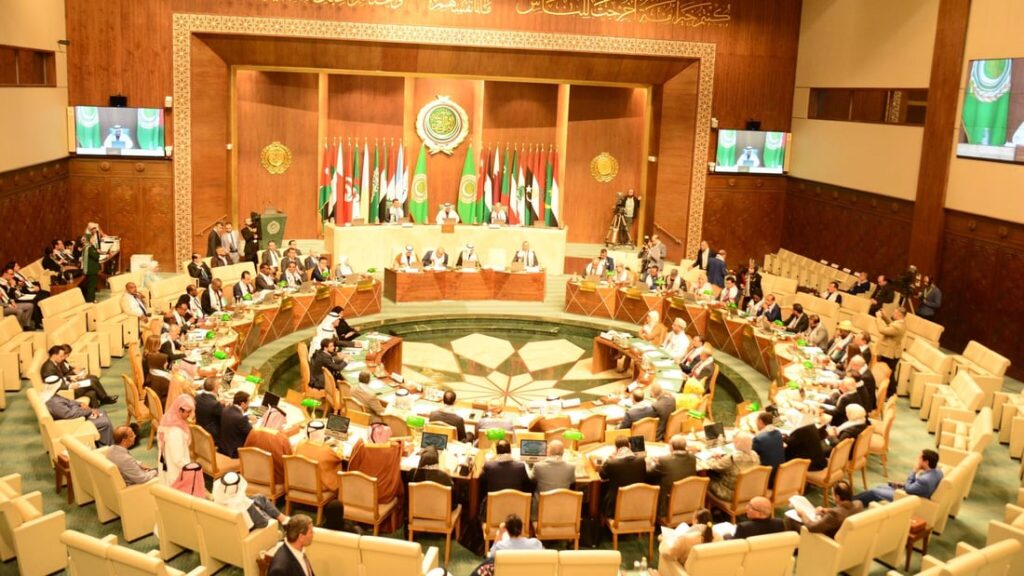‘We love life – but death loves us more’: the pain and power of Iraqi music

In the second part of a series marking 20 years since the Iraq war, genre-spanning artists explain the difficulties of working in the country – and the poignancy for those outside it
- ‘We are a forgotten people’: how rap music processed trauma in Iraq
Speaking from a newly setup studio in Baghdad, UsFoxx is eager to share his music with me, “from house to Afrobeats; old school to new school trap”. Having moved from Iraq to India after Islamic State attacks in 2015, then weathered Covid lockdowns in 2020 in Iraq after he had returned, music was an outlet for his adventurous ear.
Like many of his contemporaries, UsFoxx is self-taught in music production, and the internet and satellite dishes allowed after a ban under the Saddam Hussein regime meant that his generation could absorb new influences and create new aesthetics. He made the beat for 2022’s Iraq Cypher which brought together sharp and witty socio-cultural lyricism from nine stellar Iraqi rappers – Kira The Blurryface, Armando Rap, Nayomi, Disser, KC Hamada, AlRong, Genesis, Odd Khalid and El Seen – over a drill-adjacent beat, and London-based Saudi DJ Nooriyah has played UsFoxx’s tracks in her hugely popular Boiler Room set last December. But he’s still melancholy amid the success: “Iraqi people have suffered so much untreated trauma – we Iraqis survive, we love life, although death loves us more,” UsFoxx says with a sigh.
Over in Basra, beatmaker Hafs is a similarly melancholic figure, with a sound fluttering between ambient pop, Afrobeats and trip-hop – his fragility and depth of emotion in contrast to the prevailing hypermasculinity in the war-torn country. He explains his motivation: “When I became depressed it was because of things that happened to me in the past, and our present is rooted in the past. So I became more aware that when I make music, I can channel my feelings to the listeners: my music can make them feel the sadness or happiness that I feel.”
Hafs started his career almost 10 years ago in rap battles on online forums, and refined his creativity into his hybrid sound, coupled with a philosophical and sentimental approach. “When someone hurts me, I don’t reply immediately – I relax and leave it, then make music and write about that pain,” he says with a wry smile. His single Kawabis (meaning nightmares in Arabic) was drawn from a harrowing moment – “I had a nightmare about having a nightmare. I could not touch myself and had so much pain from life” – and incorporates sounds and beats found on the internet, “softening the harshness” of the maazoufeh rhythm.
In Basra there are no venues to perform in, due to the conservative nature of society, so the only places in which to perform non-classical styles of music are public parks. Though even there, Iraqi youth are still under the watchful eyes of society and the various militias wearing differently coloured uniforms, all protecting different “ministries” and neighbourhoods under various guises.
So Hafs has released a large number of albums via YouTube, the chief medium for releasing music in Iraq. More recently he has put out work on the indie record label Shlonak Records, founded by Canada-based Iraqi rapper and professor Narcy, who established it to aid releases in a country where Spotify only arrived in 2021 and the physical production of music relies on piracy. Producer Abdulisms, a principal voice on the Iraqi music scene in London and another vital part of Shlonak Records, explains the logistical barriers in Iraq: “Most tracks are distributed on Telegram channels; there’s often no way of getting MP3s apart from ripping them off YouTube.” The other issue is that PayPal is not available there.
But Covid lockdowns deepened the ties between musicians in Iraq and around the world. Unable to collaborate with people in London, Abdulisms joined Iraq-A-Fella Radio, a show started by MoCity, a Delhi-based Iraqi label owner and DJ, exploring many branches of sonic heritage, “from chobi to chalghi, to more nostalgic tunes, presenting Iraqi female singers, rappers and football anthems,” Abdulisms says. UsFoxx was also involved, “feeding us all the tracks and information from Iraq. Iraq-A-Fella started as heart surgery” – something to heal its wounded listeners – “and took on a life of its own. It was mad!”
Meanwhile, London-based British-Iraqi artist manager Nazar Risafi has been working with Iraqi duo Tribe of Monsters, who are based in Amman, Jordan. Their trailblazing single Cypher took the voice of legendary Iraqi singer Sajda Obeid and blended it with Cardi B and Gucci Mane, spiced up with a trip-hop groove and Iraqi percussion and interwoven with samples of Arabic instruments such as the oud and nay.
Risafi explains that the Tishreen uprising, which lasted almost two years and saw a mass movement of Iraqi youth take to the streets demanding a new homeland and Iraqi identity beyond sectarianism, had a huge effect. “We started seeing rap artists online and on the streets, rapping about the revolution,” he says. “From there people started to connect – in 2020 you saw collaborations between artists in Iraq with artists outside Iraq.” Rapping about state corruption as well as the insidious effects of sectarianism, economic downturn, unemployment and international interference in Iraq, the music is both anti-establishment and anti-interventionist.
The first Tribe of Monsters single Dheil A’waj (Crooked Tail) meticulously described the daily struggles young people faced on the streets during the uprising, followed by Albo October, which referenced the protests where more than 700 protesters were killed and more than 17,000 injured. “October boys, we salute you, the Iraqi flag flies high above us and all the corrupt politicians are beneath our feet,” Ameer Shamy raps. The duo has been preparing a compilation album titled Made in Iraq, bringing together the cream of the Iraqi rap scene. There are female rappers too – at least in the diaspora – such as Nayomi or Psi.ko, but Iraqi music is not all about electronic music and rap.
In the US, Iraqi-American jazz trumpeter and musician Amir ElSaffar has been touring with the Two Rivers Ensemble; a sextet of international and south west Asian musicians making innovative strides between American jazz and the maqam modal system which ElSaffar explains is “a repertoire of melodies that are sung to poetry and practised in Iraq for hundreds of years, going back to the Abbasid era [750 to AD1258]”. For him, playing this specifically Iraqi music is a political gesture, reminding listeners of how the country endures. “I’m glad that some people are remembering and acknowledging the horrors, but it seems like [most of] the world has moved on,” he says. “We still need to think about the impact on ordinary Iraqis.”
He has just returned from a visit to Iraq for the first time in 20 years, and was wowed by a 40-strong ensemble of musicians all under the age of 35. “I was getting tears in my eyes, because they were playing from memory and putting their hearts into it in a very intimate way.”
Nadin Al Khalidi is an Iraqi multi-instrumentalist and singer for the Sweden based group Tarabband who plays another style altogether: veering between the ecstatic Arab urban music of tarab and western folk and classical arrangements, Al Khalidi adds a touch of Iraqi chobi (an upbeat folkloric rhythm local to Iraq), jazz and north African rhythms.
Growing up in an artistic household, with weekly visits to the Iraqi National Symphony Orchestra, she recalls sirens and bombs soundtracking her childhood during the Gulf war. After that, she says, “there were the sanctions on Iraq; there was the dictatorship and constant spying, and then the invasion.” The Iraq war in 2003 forced Al Khalidi and her sister to flee as refugees – she speaks to me from her home office in Malmö. She had been taught to play the violin at The Music and Ballet School of Baghdad as a child, but had to abandon her musical education due to the wars. Upon arriving in Sweden Al Khalidi worked in a pub, where the Serbian owner encouraged her to sing in Arabic. “I had no responsibilities; my parents had died and I was eager to live. I dreamed of playing the guitar and there I was, playing the music that I loved for the first time, with a PA system and a mic.” Within a week, the Malmö Symphony Orchestra asked her to take part in a project sharing Arabic folk music, where she met her eventual Tarabband collaborator Gabriel Hermanson.
For the 2022 album Yekhaf (I Intimidate Him) she worked with an Egyptian poet, Hazem Wefy, “who helped me understand how I’m writing from personal experiences. The album is about encounters with fellow Iraqis, Arabic-speakers and kindred spirits, the young generation of Iraqis demonstrating on the streets,” and about “new friendships and support systems created en route.” One of the most touching songs is Sedra, dedicated to a refugee girl from Mosul who Al Khalidi met during a performance in 2018. “She kept interrupting me as I was singing in Arabic. Later she told me that she saw the execution of both her parents by IS. She asked me to sing about her – and this song is for her.”
Farther south in Europe, the experimental, innovative work of Khyam Allami, a Berlin-based British-Iraqi multi-instrumentalist, researcher and founder of the label Nawa Recordings, draws from the past to look into the future. Allami studied oud in London and engaged with Iraqi maqam which are the basis for his debut album, Resonance/Dissonance, “but I always wanted to understand what makes an Iraqi song and what’s the thumbprint carried within,” he says. “We can forge new ideas and a new future by learning from the past, but that doesn’t necessarily mean reviving the past or taking it literally. What I’ve been trying to get at is the essence of something.” He says he’s been inspired by African American artists, who, “whether it’s hip-hop, jazz, or other artistic and musical forms, have had to define their own future based on their past, in a way that’s owned and committed.” Allami is now delving into 9th and 10th-century Babylonian and Sumerian manuscripts and how they relate to today’s culture.
The deep desire for Iraqis such as UsFoxx and Hafs to connect with the outside world is met, then, with a similar desire from the Iraqi diaspora to connect with their homeland – which needs to be handled sensitively. Allami remembers a collaboration with the National Youth Orchestra of Iraq a few years ago. “It was the first time that I’d been able to connect with this generation who had lived through these catastrophes. One kid had his entire family killed in an air raid; that generation has a look in their eye that tells us that we haven’t lived what they’ve lived through. But I’ve learned that we need to think about our contributions regardless of our positions.” What he contributes, he says, is “allowing others to do a different kind of work”.
ElSaffar also often thinks about how he can “connect the jazz improv scene to that in Iraq”, and for Al Khalidi it is a similar story: “I would love to perform in Iraq with Tarabband, but I would come back home to Sweden”. Every Iraqi has a story of why they had to leave, Abdulisms explains: “The question of returning is far too complex and intersects with a lot of power [structures].”
Despite the challenges, Iraqi musicians are asserting the longstanding plurality of their country’s identity and adding to the remarkably eclectic fabric of its music. It seems that even the Iraqi government is catching up: prime minister Mohammed Shia Al-Sudani recently gave the green light for works to resume on Baghdad’s Opera House. One of the oldest symphony orchestras in the world can once again become a space nurturing culture and creativity – qualities that are clearly in abundant supply in Iraq.





